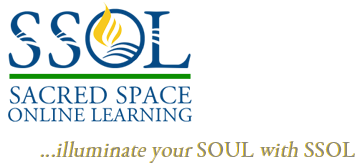Sulam for Strategic Planners Webinar Topics
2014-2015
1. Forming a Strategic Planning Committee- Defining Scope of Planning
This session will address the recruitment of a steering committee (SC), including the skills and characteristics necessary for success. It describes the composition of the team between experienced current leaders and new and emerging leaders. It defines the scope of planning, establishes a time line of planning and the commitments of planners.
2. Situation and SWOT Analysis
This session focuses on preparing leaders to identify their community’s critical issues and needs. Leaders will be guided to create a planning SSP “FACT Book” that holds important data about membership, demographics, dues levels, school enrollment, etc. Leaders will learn how to use the SSP Committee Interview Worksheets to interview key committees that will be the focus of planning. With these two sets of data, leaders will be taught how to create an initial SWOT analysis (Strengths, Weaknesses, Opportunities and Challenges) of their current situation. We call this first effort SWOT 1.0 because this document will evolve as planners learn more.
3. Congregational Data Gathering – Surveys & Focus Groups
This session provides an overview of survey strategies. Participants will be introduced to the SSP Congregational Survey template that includes information on members’ demographics as well as their attitudes and beliefs about the synagogue. We will discuss how surveys can involve the whole kehilla (congregation), signaling that the congregation is going through a period of deep reflection. With this in mind, this session will explore the potential of conducting focus groups to go deeper. We will learn how task forces can invite the congregation to probe into critical issues that have been identified such as religious services, the religious school, financial giving, etc.
4. Mission and Vision Statements
This session will explore how a mission and vision statement can become a sacred text that calls for continual commentary and engagement. The focus of SSP is on the vision statement because it provides a picture of the community planners seek to create. Planners will learn how a vision statement can be a source of inspiration and provide strategic direction to the SC and the task forces. We will provide a guide for the SSP Mission and Vision Team made up of the rabbi, staff and lay leaders to create “vision 1.0” in “bullet draft” form.
5. Review of Survey Results and Themes
This session discusses how the SSP Data Gathering Team will organize the data from the SSP Fact Book, the congregational surveys and focus groups. We will show how the Data Gathering Team will prepare an Executive Summary of the survey and help the SC debrief the findings. This session explores the vital work of task forces. We will discuss how to honor both the work of volunteers and staff on ongoing committees and task forces.
6. Strategic Direction for Task Forces
This session shows how the SC provides direction to task forces and coordinates their efforts. In addition, task force recruitment, the role of volunteers and staff and the scope and complexity of different task force assignments will be addressed. We will look at task force data gathering (focus groups, etc.). We will review the task force job description and their report template.
7. Priority Setting-Recommendations
This session covers the criteria for reviewing task force recommendations and prioritizing them. Planners learn how to understand the relative impact of recommendations to increase revenue (fees, members, donors) or reduce costs (cutting costs, finding partners, being more efficient). Planners will also learn how to conduct the priority setting workshop which places all recommendations on a central document and reviews the time frame of recommendations, their cost, potential impact and complexity.
8. Report Adoption and Implementation
This session prepares planners to give a final report and board presentation. It discusses the responsibility of the board to make assignments and provide a charge to committees and staff for implementation. Planners will be prepared to share findings and to inspire support and ongoing engagement in initiatives throughout the community.
To see the list of SSP Pilot “Action Community”, click here.
To learn more about Sulam for Strategic Planning, please contact your Kehilla Relationship Manager, call 212-533-7800 or email us at kehilla@uscj.org.
For more information about any Sulam Leadership offerings, please contact your Kehilla Relationship Manager, call 212-533-7800 or email us at kehilla@uscj.org.
Learn more about this webinars on the United Synagogue of Conservative Judaism website




